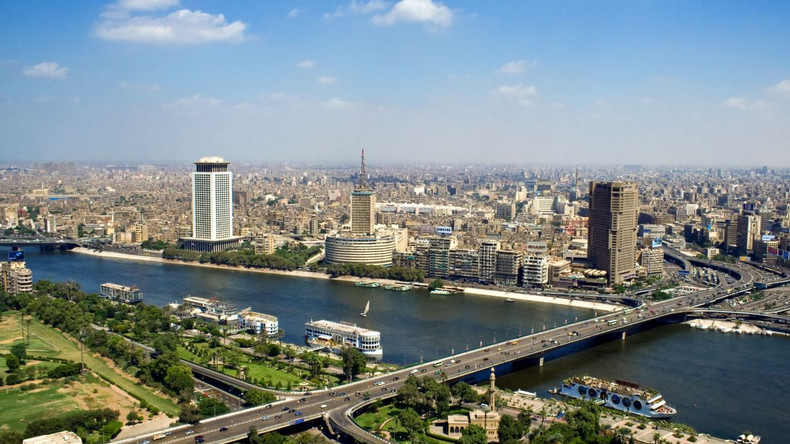Egypt is a country that connects northeast Africa with the Middle East and has a history dating back to the time of the pharaohs. Along the fertile Nile River Valley, there are ancient monuments such as the colossal Pyramids and Great Sphinx in Giza, as well as the hieroglyph-lined Karnak Temple and the tombs in the Valley of the Kings in Luxor. The capital city, Cairo, is home to Ottoman landmarks like the Muhammad Ali Mosque and the Egyptian Museum, which houses a vast collection of antiquities.
The annual flooding of the Nile River, combined with the natural barriers of deserts to the east and west, contributed to the rise of one of the world's great civilizations in Egypt. A unified kingdom emerged around 3200 B.C., and several dynasties ruled Egypt for the next three millennia.
The Nile River is crucial to Egypt because, without it, the entire country would be a desert. Egypt receives very little rainfall, only about an inch (2.5 centimetres) per year. However, during the summer, the river rises due to rains at its source in Ethiopia, far to the south. The resulting floods cover the river's valleys, depositing sediments that are essential for the growth of trees, plants, and crops.
Egypt is often divided into two sections: Upper Egypt in the south and Lower Egypt in the north. The sections are named this way because the Nile flows from south to north, and the river empties into the Mediterranean Sea.
Southern Egypt's landscape contains low mountains and deserts, while northern Egypt has wide valleys near the Nile and desert to the east and west. North of Cairo, the capital, is the sprawling triangular Nile River Delta, which is completely covered with farms due to its fertile land.
The Persians overthrew the last native dynasty in 341 B.C., followed by periods of Greek, Roman, and Byzantine rule. The Arab conquest in the 7th century brought Islam and the Arabic language to Egypt. Subsequently, Egypt was ruled by the Mamluks and then the Ottoman Turks from 1517.
The construction of the Suez Canal in 1869 elevated Egypt's global significance as a transportation hub. In 1882, Britain took control of Egypt's government ostensibly to protect its investments. Although Egypt remained nominally tied to the Ottoman Empire until 1914, it gained partial independence from the UK in 1922 and full sovereignty in 1952. British forces withdrew from the Suez Canal Zone in 1956.
In addition, the completion of the Aswan High Dam in 1971 and accordingly the formation of Lake Nasser reinforced the Nile River's crucial role in Egypt's agriculture and ecology. Egypt's rapidly growing population, limited arable land, and reliance on the Nile continue to strain resources and society. The government has struggled to meet the needs of the expanding population through large-scale infrastructure projects, energy initiatives, and foreign direct investment appeals.
Egypt is the largest and most densely populated Arab country, covering approximately one million square kilometres. However, much of the land is desert, with only 7.7% of Egypt's area inhabited.
The government has pursued a policy of land reclamation and the establishment of new settlements in the desert. Despite these efforts, the majority of Egyptians reside in the Nile Delta in the north or the narrow Nile Valley south of Cairo. Egypt is administratively divided into 27 governorates, with four urban governorates (Cairo, Alexandria, Port Said, and Suez) having no rural population. The remaining 23 governorates are further divided into urban and rural areas.
Inspired by the 2010 Tunisian revolution, Egyptian opposition groups organized demonstrations and labour strikes across the country, leading to President Hosni Mubarak's ouster in 2011. Egypt's military assumed national leadership until a new legislature was established in early 2012. Later that year, Mohamed Morsi of the Muslim Brotherhood won the presidential election.
Following protests in spring 2013 against Morsi's government and the Muslim Brotherhood, the Egyptian Armed Forces intervened, removing Morsi from power in July 2013 and installing interim president Adly Mansour. Subsequently, the government enacted laws to restrict freedoms of assembly and expression. In 2014, voters approved a new constitution through a referendum and elected former defence minister Abdel Fattah El-Sisi as president. El-Sisi was reelected to a second four-year term in 2018 and a third term in December 2023.
